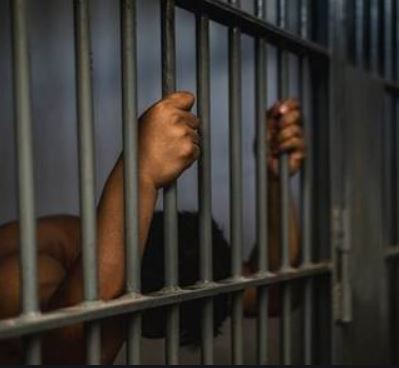Jamar Long, 25, and Reddell Smith, 35, both of Syracuse, were sentenced today to serve 210 months (Long), and 78 months (Smith), respectively, in federal prison for violating the Racketeering Influenced Corrupt Organizations Act (RICO), announced Acting United States Attorney Antoinette T. Bacon, Thomas F. Relford, Special Agent in Charge of the Albany Field Office of the Federal Bureau of Investigation (FBI), and Syracuse Police Chief Kenton Buckner. Senior United State District Judge Frederick J. Scullin, Jr. also ordered Long and Smith to serve three years of supervised release following their terms of incarceration.
During his guilty plea, Long admitted to driving a car from which co-defendant and fellow 110 Gang member Anthony Hopper fired multiple shots at an individual in October 2014 – identified in the indictment as “Victim-3” – which caused that individual to lose control of his car, crash into a tree, and die. A federal jury found Anthony Hopper guilty of RICO violations, including Victim 3’s death, following a trial in October 2019. Long also admitted to selling drugs in 110 Gang territory. In imposing sentence, Senior Judge Scullin found that Long had possessed weapons and committed other acts of violence on behalf of the gang.
During his guilty plea, Smith admitted to stabbing another individual in December 2017 while with co-defendant and fellow 110 Gang member Damani Prince. Smith also admitted to selling crack cocaine in 110 Gang territory during 2017. Smith was previously convicted in 2011 of RICO violations, based on his membership in the 110 Gang. Smith was also sentenced today to serve an additional 13 months in prison for violating the terms of his supervised release on the 2011 RICO conviction.
Long and Smith were among fourteen defendants charged in the case. All of the defendants have either pleaded guilty or been convicted following trial. Previously sentenced 110 Gang RICO defendants in this case include:
- Anthony Hopper was sentenced to 385 months in prison, followed by a 5-year term of supervised release;
- Damani Prince was sentenced to 78 months in prison, followed by a 3-year term of supervised release;
- Rashawn Wynn was sentenced to 92 months in prison, followed by a 3-year term of supervised release;
- Davon Sullivan was sentenced to 68 months in prison, followed by a 3-year term of supervised release;
- Qualik Vaughn was sentenced to 68 months in prison, followed by a 3-year term of supervised release;
- Jason Lebron was sentenced to 92 months in prison, followed by a 3-year term of supervised release;
- Javon Peterson was sentenced to 98 months in prison, followed by a 3-year term of supervised release;
- Daquan Dowdell was sentenced to 120 months in prison, followed by a 3-year term of supervised release;
- Terry Linen was sentenced to 110 months in prison, followed by a 3-year term of supervised release;
- Deshawnte Waller was sentenced to 80 months in prison, followed by a 3-year term of supervised release; and
- Kemnorris Kinsey was sentenced to 150 months in prison, followed by a 3-year term of supervised release.
This case was investigated by the Federal Bureau of Investigation (FBI), the Syracuse Police Department, and the Gang Violence Task Force, which consists of members of the Syracuse Police, the FBI, the U.S. Drug Enforcement Administration (DEA), the U.S. Marshals Service, the U.S. Bureau of Alcohol, Tobacco, Firearms and Explosives (ATF), the New York State Police, the New York State Department of Corrections, the New York State Attorney General, and the Onondaga County District Attorney’s Office. This case was prosecuted by Assistant U.S. Attorneys Nicolas Commandeur and Kristen Grabowski.
This case was brought as part of Project Safe Neighborhoods (PSN), the centerpiece of the Department of Justice’s violent crime reduction efforts. PSN is an evidence-based program proven to be effective at reducing violent crime. Through PSN, a broad spectrum of stakeholders works together to identify the most pressing violent crime problems in the community and develop comprehensive solutions to address them. As part of this strategy, PSN focuses enforcement efforts on the most violent offenders and partners with locally-based prevention and reentry programs for lasting reductions in crime.

